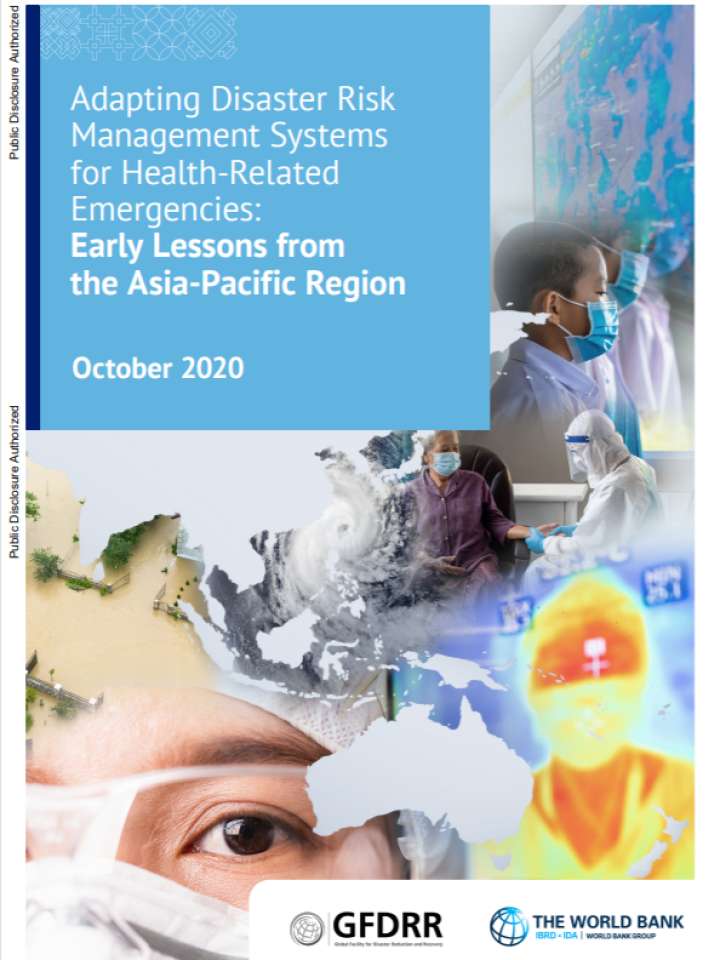Adapting disaster risk management systems for health-related emergencies : early lessons from the Asia-Pacific region
On March 11, 2020, the World Health Organization (WHO) declared the first pandemic caused by a coronavirus (COVID). Countries around the world moved swiftly to declare states of emergency, closing ports of entry and activating crisis management systems. This technical note highlights the adaptive nature and flexible application of national disaster management systems in 15 selected Asia-Pacific countries that are responding to public health emergencies resulting from the COVID-19 pandemic. By analyzing early reflections and some lessons learned from the initial responses to the COVID-19 pandemic, this note considers how existing disaster management systems are applied or activated to manage health-related emergencies, focusing on four main aspects: state of emergency declaration; national disaster management organization (NDMO); risk reduction, preparedness, and awareness; and multiplicity of disasters. This note summarizes how the selected countries have applied disaster management systems and practices to COVID-19 response, following a multi-hazard approach for both natural and other hazards.
Explore further
